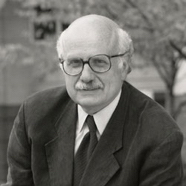Don’t Call It “Just A Hush Money” Case
 On April 15, an unprecedented trial is scheduled to begin in Manhattan. It constitutes the first criminal trial of a former President in American history.
On April 15, an unprecedented trial is scheduled to begin in Manhattan. It constitutes the first criminal trial of a former President in American history.
Last April, Manhattan District Attorney Alvin Bragg announced a 34-count felony indictment against former President Donald Trump.
This criminal case is often described simply as a “hush money” case, but that description fails to capture or portray what the case is really about – it is, at its heart, an election interference case.
As a presidential candidate in 2016, Trump allegedly arranged hush money, later falsely disguised as business records, to hide from voters his affair with adult entertainer Stormy Daniels. This occurred in the wake of the airing of the Access Hollywood video that had rocked his campaign one month before the election.
When Bragg announced the criminal indictment, he stated: “The People of the State of New York allege that Donald J. Trump repeatedly and fraudulently falsified New York business records to conceal crimes that hid damaging information from the voting public during the 2016 presidential election.”
According to the DA office’s explanation of the indictment: Trump was out to “bury negative information about him and boost his electoral prospects. Trump then went to great lengths to hide this conduct, causing dozens of false entries in business records to conceal criminal activity, including attempts to violate state and federal election laws.”
To place the “hush money” payment in context, we need to go back to early October 2016 when video from Trump’s 2005 Access Hollywood interview went public.
As described by Politico, Trump “bragged about groping, kissing, and attempting to have sex with married women — and said he was entitled to do so because he’s a ‘star.’” Trump’s vulgar sexual comments on the video led to an explosion of public criticism. Republican leaders in Congress strongly criticized Trump and others called for him to step down from the ticket.
At the same time, Trump was facing another serious problem. Daniels was apparently ready to go public about her affair with Trump – a revelation that, in the wake of the Access Hollywood firestorm, might have been the last straw for voters.
So, Trump allegedly had his fixer Michael Cohen pay Daniels $130,000 in “hush money.” Trump later allegedly reimbursed Cohen for the payment.
(The Daniels payments were among the Trump-related illegal activities that ultimately sent Cohen to prison.)
According to the DA office’s indictment description, the repayments to Cohen came “first from the Donald J. Trump Revocable Trust – created in New York to hold the Trump Organization’s assets during TRUMP’s presidency – and later from TRUMP’s bank account. In total, 11 checks were issued for a phony purpose.”
The majority of the checks were signed by Trump.
The indictment description further noted: “Each check was processed by the Trump Organization and illegally disguised as a payment for legal services rendered pursuant to a non-existent retainer agreement. In total, 34 false entries were made in New York business records to conceal the initial covert $130,000 payment. Further, participants in the scheme took steps that mischaracterized, for tax purposes, the true nature of the reimbursements.”
The “hush money” to Daniels, provided by Cohen and later reimbursed by Trump, was not given in a vacuum. If the Trump/Stormy Daniels affair became public in the closing days of the election, coupled with the Access Hollywood revelation, it could have cost Trump the election.
Trump carried Pennsylvania by just 68,236 votes, Michigan by just 11,837 votes and Wisconsin by just 27,257 votes. While Hillary Clinton won the popular vote by nearly 3 million votes, those three states made the electoral difference for Trump.
That’s why it’s wrong to call this just a “hush money” case. It’s about far more than just covering up an affair. The undisclosed payments directed by Trump to stop Stormy Daniels from going public with their affair were made to influence and impact the 2016 presidential election.
And, hiding the affair may have ultimately made the difference in the election.
Trump’s alleged successful effort to make undisclosed campaign-related expenditures to influence the 2016 election, may have also emboldened his far more destructive attack on democracy – his attempt to overturn the 2020 presidential election and incite an insurrection.
Bottom line: don’t call it just a “hush money” case. It’s about much, much more than that.
____________
Fred’s Weekly Note appears on Thursdays in Wertheimer’s Political Report, a Democracy 21 newsletter. Read this week’s and other recent newsletters here. And, subscribe for free here and receive your copy each week via email.